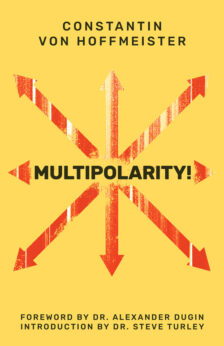People travel for various reasons. Some travel for business, others for pleasure, still others for rest, some to visit quarrelsome relatives, others to celebrate the wedding of a friend, and so on. Just as there are many different ways of life, there are many different kinds of travel. However, no matter what the reason, all journeys share a common emotion. Whether one embarks on a journey for a night or a year, there are similar feelings that inevitably arise when traveling. Just as all lives, whether they are short or long, happy or miserable, have a common feeling of life.
To travel is to escape from one’s daily living environment, to escape from the habitual relationships and banalities of everyday life. The joy of travel is most often the joy of being liberated in this way. Even if one does not travel in search of liberation, everyone feels liberated in some way when traveling. Some people even embark on a journey specifically with the purpose of escaping from life. Even if one does not specifically wish to escape, everyone feels some kind of escape when traveling. It may be related to this that the object people often choose for their journey is nature, and that even human life is, at its core, a primitive, natural life. Such feelings of liberation or escape in travel are always accompanied by other, more ambiguous feelings. That is to say, traveling makes everyone feel a sense of wandering to a greater or lesser extent. Liberation is wandering, and escape is wandering. Therein lies the sentimentality inherent in travel.
The feeling of wandering is a feeling of movement, and one might say that it arises from the fact that travel is, in essence, about movement. And it is certainly a feeling of movement. However, we feel the wandering of a journey not when we are moving in a car, but rather when we have settled down at an inn. The feeling of wandering is not a mere feeling of physical movement. To go on a journey is to escape from the habitual and therefore stable relationships of daily life, and the feeling of wandering is brought about from the anxiety that arises from this. Travel is somehow unsettling, even if it is pleasant.
However, the ambiguous sense of wandering cannot be thought of without a feeling of distance. And any kind of travel gives a distinct sense of distance. This distance has nothing to do with distances that can be measured in miles or kilometers. A person who commutes to the office by train from afar every day would not feel this kind of distance. However, if he travels for a day, even if it is a shorter distance, he will feel that distance. The spirit of travel is far away, and it is this remoteness that makes travel travel. That is why we are always more or less romantic in our travels. Romanticism is nothing but the feeling of remoteness. Much of the pleasure of travel is thus created by the imagination. One could even say that travel is the utopia of life.
However, travel is not simply about distance. Travel is hectic. There is a hectic feeling to travel, whether it be by plane, train, or on foot. Even if it is a simple trip with only one bag, a journey has its own rush. Travelling by train or on foot also has its own rush. Travel is always distant and thus romantic, and yet always hectic. That is why the feeling of wandering, of drifting, arises from it. The feeling of wandering is not simply a feeling of remoteness. We feel adrift because we are at once far away and in a hurry. If something is destined to be far away, why do we need to hurry? It may not be distant, but close. No, travel is always far away and always near at the same time. And this means that the journey is a process. Travel is a process, and therefore a wandering. A journey is not the point of departure, nor is it the point of arrival; travel is always a process.
Those who only concern themselves with reaching their destination and fail to appreciate the journey along the way are considered to be those who do not know the true joy of travelling. In everyday life, we are always concerned mainly with the destination, with the result; this is the nature of what is called action or practice. Travel, on the other hand, is essentially contemplative. In travel, we are always the spectator. The distinctive feature of travel is that it allows us to escape from our everyday practical lives and become purely contemplative. From this, we can also begin to consider the meaning of travel in life.
Why is travel so distant? It is because we are facing the unknown. Even in our daily experiences, when we walk down an unfamiliar road for the first time, it feels farther than it actually is. If everything were completely known, there would be something like a daily commute, but there would be nothing that could essentially be called a journey. Travel is about being drawn to the unknown. That is why travel is accompanied by a feeling of wandering. In travel, it is impossible to say that everything is known. Because it is not simply the destination or the result that is of concern, but rather the process. Those who pay attention along the way will inevitably encounter something new and unexpected. Traveling is an escape from habitual forms of life, and thus enables us to see things with more or less renewed eyes, and because of this we are also more or less able to discover new things in things. What we are used to seeing in our daily lives is always new to us when we travel. The benefit of traveling is not simply to see something completely new for the first time — is there anything in the world that can be called completely new? — but rather in marveling at what we have always thought of as obvious or known.
Our daily lives are action-oriented, concerned only with arrival points or results, assuming everything else, everything in-between, the process, as if it were already known. A person who habitually commutes to work every day probably cannot recall what he did or what he encountered between the time he left home that day and the time he arrived at the office. However, when we travel, we can become purely contemplative. A traveler is not a doer, but a seer. By becoming purely contemplative in this way, we are able to feel a new sense of wonder or curiosity about things we have always assumed to be known or self-evident. This is why travel is at once an experience and an education.
It is often said that life is a journey. This is a true feeling that comes to us all. The feelings we have about life are similar to those we have when we travel. Why is this? From where to where is the fundamental question of life. Where did we come from, and where are we going? This has always been the fundamental mystery of life. As long as this is the case, the feeling that life is a journey will never change. Where exactly are we going in life? We do not know. Life is a wandering into the unknown. It may be said that our destination is death. But what death is, no one can answer with certainty. The question of where we are going may in turn lead to the question of where we came from. Consideration of the past arises from consideration of the future. A wandering journey is always accompanied by a nostalgia that is difficult to grasp. Life is long, yet life is hectic. The journey of life is long, yet near. Death is at our feet every moment. And yet, in such a life, man will never stop dreaming.
We live our lives according to our imaginations. Everyone is more or less a utopian. Travel is the form of life. In travel, we leave the mundane and become purely contemplative, and thus have new feelings towards life, which we usually take for granted as something self-evident and known. Travel makes us taste life. I have said before that the feelings of distance, closeness, and movement are not related to objective distance, closeness, or movement. It is always the self that we encounter in our travels. In our journeys through nature, too, we constantly encounter ourselves. Travel is not something other than life, but rather it is life itself.
As already mentioned, a person often goes on a journey in search of liberation. Travel will certainly liberate him. But if he thinks that this will make him truly free, he is mistaken. Liberation is freedom from certain things, and this kind of freedom is only a passive freedom. When we travel, we are prone to become spontaneous and fickle. For those who want to make use of people’s spontaneousness, the easiest way is to take them on a journey. Travel makes people more or less adventurous, but this adventure is still spontaneous and fickle. The feeling of wandering that comes with traveling is the root of such spontaneousness. However, spontaneousness is not true freedom. Those who act only according to whims and impulses cannot gain true experience in travel.
Traveling invigorates our curiosity. But curiosity is not the same as a true desire for knowledge. Curiosity is a fickle thing. It does not stop at one place to look, but moves from one place to the next. How can one truly know something without stopping in one place and going deeply into it? The root of curiosity is also the feeling of wandering without a fixed position. Traveling also makes people sentimental. However, if one is merely immersed in sentimentality, one will end up not understanding anything deeply and not having any original feelings.
True freedom is freedom in things. It is not simply to move, but to stop while moving, and to move while stopping. It is said that movement is stillness, and stillness is movement. Wherever man goes, there are green mountains. This phrase has a somewhat sentimental connotation, but it is only those who are committed to its meaning who can truly experience the journey. The person who can truly savor the journey is a truly free person. Through traveling, the wise become wiser and the foolish become more foolish. One can get a good idea of what kind of person you associate with on a daily basis is by traveling with them. Each man makes his own journey. A person who is truly free in travel is a person who is truly free in life. Life itself is truly a journey.







